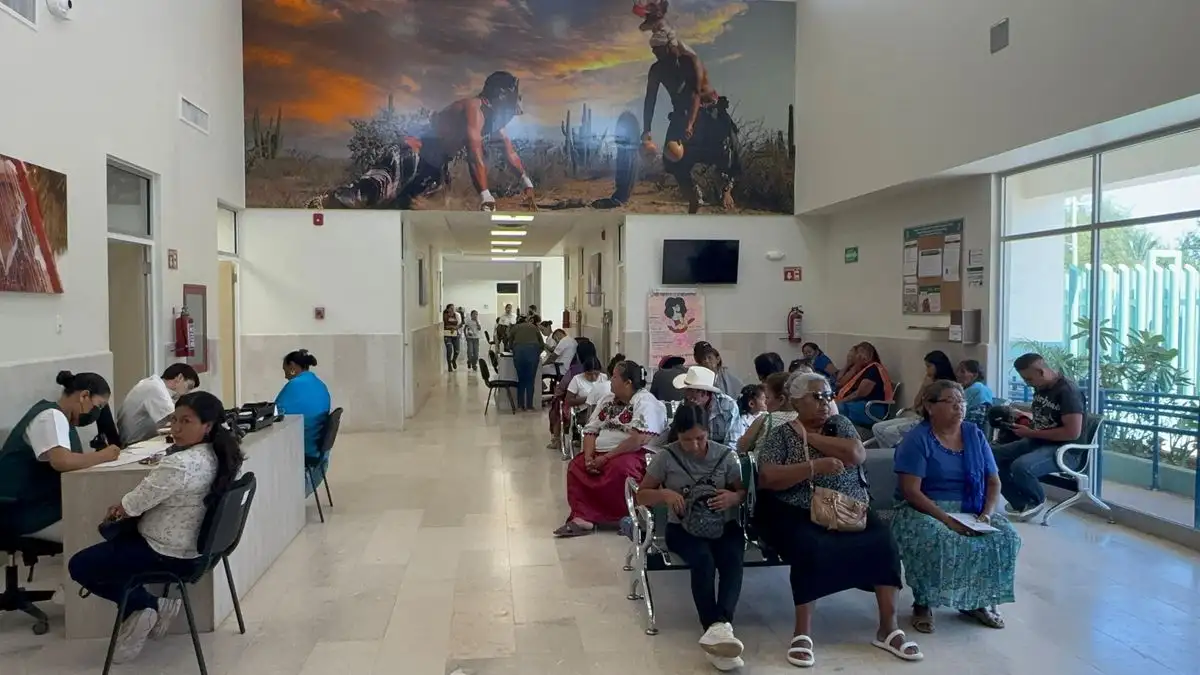For the first time in Mexico, the ancient heartbeat of Yaqui medicine has found an official place within the public health system. María Francisca Rosario Matuz, known as Doña Panchita, will lead the first traditional indigenous clinic approved by the Federal Commission for the Protection against Sanitary Risks (Cofepris), at the IMSS Bienestar Hospital in Vícam Switch, the heart of the Yaqui Nation.
This unprecedented event not only officially endorses the use of traditional infusions, ointments, massages, and cleansings, but also recognizes, in the role of the Mexican State, that health also resides in the worldview of indigenous peoples.
Doña Panchita, heir to her mother’s healing knowledge and niece of the legendary Yaqui healer María Matuz, has spent more than 15 years soothing bodies with plants, prayers, and her hands, which she learned to heal since childhood, witnessing births and learning remedies that were never taught in classrooms.
“I learned from my mother because she healed, and she was also a midwife. I realized that she would bring someone with her to give birth. I learned from there. They wouldn’t let me in, but I always watched,” she said.
On July 18, the woman was appointed head of the first traditional indigenous medicine clinic approved by Cofepris.
In her backyard, Doña Panchita cultivates a garden that is more than just a vegetable patch: guavas, rue, epazote, sage, and mountain tabachin—a flower that soothes kidneys, regulates blood pressure, and fights diabetes—grow between shadows and light, reminding us that, in this land, every plant holds a destiny.
“When it doesn’t rain, the animals start eating everything up there in the woods. That’s where traditional medicine ends up, and then if it doesn’t rain, even more so,” she told La Jornada.
That same forest in Yaqui territory provides the herbs now prepared in the hospital’s office, where a Yaqui midwife trained by institutional doctors also works to combine culturally relevant care with safe obstetric care.
The model is simple and profound: the patient can go to the IMSS doctor, to Doña Panchita, or both. It’s not about excluding, but about adding. “Everything is cured here,” she assures. “We see people, we give them appointments every month, and if they have any pain, they come here. It’s their space.”
The mission remains the same for Doña Panchita, who learned in her mother’s kitchen, watching water boil in pots with freshly cut leaves and listening to the voices of women in labor. Now, this ancient act is practiced under an institutional umbrella, without losing its essence and roots.
In the Yaqui Nation—eight villages spread across the Bacatete Mountains, the fertile Yaqui Valley, and the coast of the Sea of Cortez—there are at least 12 active healers. None charge for their services; payment is, when received, a tip or a gift. This fabric of reciprocity and service sustains a tradition that has survived droughts, modernity, and displacement.
The hospital where the clinic is located was inaugurated on July 12 by President Claudia Sheinbaum Pardo, as part of the Justice Plan for the Yaqui People. With an investment of more than 700 million pesos, it has operating rooms, a neonatal room, 30 beds, and 56 specialists.
Cofepris endorsed this space after reviewing its practices and protocols, but in the community, validation came much earlier, through years of trust in a woman who never stopped caring for anyone who came to her home.

Source: jornada




